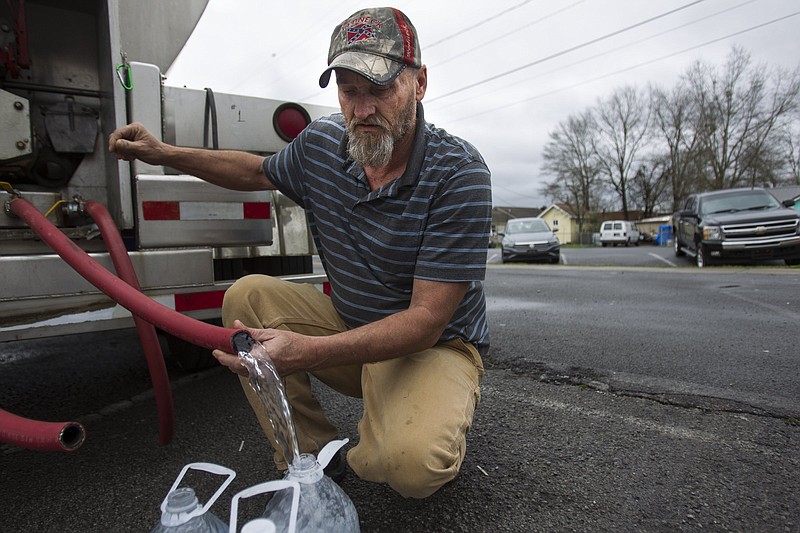Summerville Mayor Harry Harvey said the City Council is considering raising water rates for city customers at a time many residents are still afraid to drink the water after it was found to be contaminated.
Harvey said the rate increase could be 20 to 25% and will help cover the costs of the water remediation project that now is estimated to cost between $1.5 million and $3 million.
Earlier this month, the city in Chattooga County, Georgia, found that a test-well site on Highway 48 will be able to supply the amount of water needed to dilute the current supply and provide drinking water that will meet government standards.
The project will include drilling a new well and installing a 16-inch transmission line that will run 3 miles long and pipe water back to the Filter Plant Road water station. The cost will be higher than originally thought.
Harvey didn't know how much more people would have to pay on their monthly bill due to the possible increase, and City Manager Janice Galloway did not return a call Friday afternoon to clarify.
The council has not voted to raise rates but talked about the possibility at a budget workshop this month.
With production and expenses naturally increasing as Summerville grows, Harvey expected a slight increase in water rates this year in the ballpark of 2 to 3%. The water crisis the city found itself in inflated those costs greatly.
At the end of January, city officials were notified by the U.S. Environmental Protection Agency that water from Raccoon Creek showed high levels of perfluorooctane sulfonate and perfluorooctanoic acid.
Those human-made chemicals are used to make carpet, clothing fabric, cookware, paper, food packaging and other materials.
The city has said the levels of both chemicals in its water supply have not increased but the EPA standards changed in 2016.
The plan is to have a new well that could provide enough drinkable water to dilute and mix with the water from the Raccoon Creek treatment plant so the levels of the two contaminants are lowered.
Eventually, a second well will have to be drilled to completely phase out the Raccoon Creek facility, Harvey said.
Early estimations for the project and a long-term solution were between $1 million and $1.2 million. Now, that number is closer to $3 million and could be more, Harvey said.
The water has been safe for most people to drink for months. The health advisory was mainly aimed at more vulnerable populations like infants and pregnant women, according to the EPA.
The current test well is producing 1,000 gallons of water a minute, Harvey said, and the initial results are promising.
Harvey also said the city is exploring ways for the state and the federal government to help with either loans or grants.
"We can't say we've solved the problem," Harvey said. "I think it'll take another nine to 18 months with the wells being drilled and tested."
Harvey said installing filters and using granulated activated charcoal as a way to disinfect the water is on the table as well.
Contact Patrick Filbin at pfilbin@timesfreepress.com or 423-757-6476. Follow him on Twitter @PatrickFilbin.
